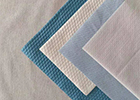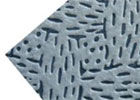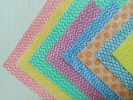Purchasing Recycled Nonwoven Polyester: Key Considerations and Uses
Introduction
When it comes to purchasing materials for your business, considering recycled options can have numerous benefits. One such material is recycled nonwoven polyester, which offers both environmental advantages and practical uses. This article will provide an overview of recycled nonwoven polyester, highlight its advantages, and explore its various applications.
Overview of Recycled Nonwoven Polyester
Recycled nonwoven polyester is a type of fabric that is made from post-consumer polyester waste, such as plastic bottles or polyester clothing. This waste material is collected, processed, and transformed into a new fabric through a nonwoven manufacturing process. The result is a versatile and durable material that can be used in a range of applications.
One key characteristic of recycled nonwoven polyester is its sustainability. By utilizing post-consumer waste, this material helps reduce the amount of plastic that ends up in landfills or oceans. It also requires less energy and resources to produce compared to virgin polyester fabrics, making it an environmentally-friendly choice for businesses.
Advantages of Using Recycled Nonwoven Polyester
There are several advantages to using recycled nonwoven polyester in your business operations. Firstly, it offers cost savings compared to traditional virgin polyester fabrics. Since it is made from recycled materials, the production costs are generally lower, allowing for more affordable pricing for businesses in need of fabric.
Secondly, recycled nonwoven polyester is known for its durability and strength. It can withstand various environmental conditions, making it suitable for both indoor and outdoor applications. Whether used for furniture upholstery, protective packaging, or automotive interiors, this material offers long-lasting performance.
Another advantage is its versatility. Recycled nonwoven polyester can be easily customized and laminated with other materials, giving it a wide range of potential uses. It can be manufactured into sheets, rolls, or even molded shapes, making it suitable for different manufacturing processes.
Moreover, using recycled nonwoven polyester aligns with corporate social responsibility goals, emphasizing your commitment to sustainable practices. By choosing this material, you can showcase your brand's dedication to environmental stewardship and attract eco-conscious customers.
Overall, recycled nonwoven polyester presents a compelling option for businesses looking for a sustainable and cost-effective fabric solution. Its durability, versatility, and environmental advantages make it a wise choice for various industries. By choosing recycled materials, businesses can contribute to a greener future while still meeting their operational needs.
In the next section, we will explore specific use cases and best practices for utilizing recycled nonwoven polyester.
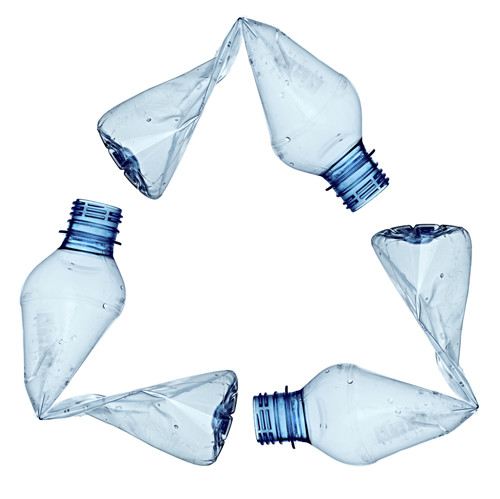
Understanding Recycled Nonwoven Polyester
Explanation of the recycling process
Recycled nonwoven polyester is a sustainable fabric that is made from post-consumer polyester waste. The recycling process begins with the collection of polyester waste, such as plastic bottles or polyester clothing. This waste material then undergoes a series of steps to transform it into a new fabric.
First, the collected polyester waste is sorted and cleaned to remove any impurities. The material is then shredded into small pieces and melted down to form a liquid. This liquid is extruded through fine holes, creating thin strands of polyester fiber. These fibers are then condensed and pressed together to form a nonwoven fabric.
The nonwoven manufacturing process used to create recycled nonwoven polyester is energy-efficient and requires fewer resources compared to the production of virgin polyester fabrics. By utilizing post-consumer waste, this process helps reduce the amount of plastic waste that ends up in landfills or oceans.
Characteristics and properties of recycled nonwoven polyester
Recycled nonwoven polyester exhibits several characteristics and properties that make it a desirable material for various applications.
Firstly, it is known for its durability and strength. This fabric can withstand wear and tear, making it suitable for long-lasting use. Additionally, it is resistant to moisture and mildew, ensuring its performance in different environmental conditions.
Recycled nonwoven polyester also offers excellent breathability, allowing for air circulation and preventing the buildup of heat or moisture. This makes it suitable for applications requiring proper ventilation, such as upholstery or filtration systems.
Furthermore, this fabric is lightweight and easy to work with. It can be easily cut, sewn, or bonded with other materials, providing flexibility in design and manufacturing processes. It can also be printed on or laminated, allowing for customization and branding opportunities.
Due to its nonwoven structure, Recycled Nonwoven Polyester is highly absorbent and quick-drying. This property makes it suitable for applications such as wipes, cleaning cloths, or hygiene products.
In conclusion, recycled nonwoven polyester is a sustainable fabric that offers durability, breathability, and versatility. Its manufacturing process helps reduce plastic waste and conserve resources, aligning with environmental sustainability goals. Understanding the recycling process and the characteristics of this fabric can allow businesses to make informed decisions when purchasing and utilizing recycled nonwoven polyester in various applications.
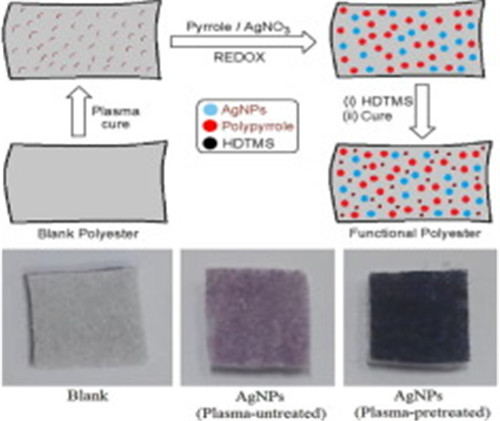
Quality and Certification Standards
When purchasing recycled nonwoven polyester, it is important to consider the quality of the fabric and the certification standards it meets.
Firstly, look for fabrics that have been manufactured using high-quality post-consumer waste. This ensures that the recycled polyester is free from impurities and defects, resulting in a fabric that is of superior quality and performance.
Additionally, check for certifications such as Global Recycled Standard (GRS), which guarantees that the fabric is made from a minimum of 50% recycled materials and follows strict social and environmental criteria. Other certifications to look out for include OEKO-TEX Standard 100, which ensures that the fabric is free from harmful substances, and Sustainable Apparel Coalition's Higg Index, which assesses the sustainability performance of textile products.
By purchasing recycled nonwoven polyester that meets these quality and certification standards, businesses can ensure that they are investing in a sustainable and reliable fabric that aligns with their environmental goals.
Sourcing and Supply Chain Transparency
Another important consideration when purchasing recycled nonwoven polyester is the sourcing and supply chain transparency.
It is crucial to choose suppliers who have a transparent and traceable supply chain. This means that they should be able to provide information about the source of the post-consumer waste and the recycling process involved.
Furthermore, inquire about the supplier's ethical practices and their commitment to fair labor standards. Ensure that they follow a responsible sourcing policy and have measures in place to ensure the welfare of their workers.
By choosing suppliers with transparent sourcing and supply chain practices, businesses can have confidence in the ethical and environmental integrity of the recycled nonwoven polyester they purchase.
Uses of Recycled Nonwoven Polyester
Recycled nonwoven polyester has a wide range of applications across various industries. Some key uses include:
1. Apparel and Textiles: Recycled nonwoven polyester can be used to create clothing, outerwear, and accessories such as bags and shoes. Its durability and moisture resistance make it suitable for outdoor and active wear.
2. Home Furnishings: This fabric can be used in upholstery, curtains, and bedding. Its breathability and resistance to moisture and mildew make it ideal for these applications.
3. Industrial Applications: Recycled nonwoven polyester is utilized in filtration systems, automotive interiors, and building materials. Its strength and durability make it suitable for demanding industrial environments.
4. Hygiene and Healthcare Products: The absorbent and quick-drying properties of recycled nonwoven polyester make it ideal for wipes, diapers, medical gowns, and other hygiene products.
By understanding the various applications of recycled nonwoven polyester, businesses can explore different avenues to incorporate this sustainable fabric into their products and contribute to a circular economy.
In conclusion, when purchasing recycled nonwoven polyester, businesses should consider the fabric's quality and certification standards, sourcing and supply chain transparency, and the various applications it can be utilized for. By making informed decisions, businesses can not only contribute to environmental sustainability but also meet the growing demand for sustainable and reliable materials in the market.
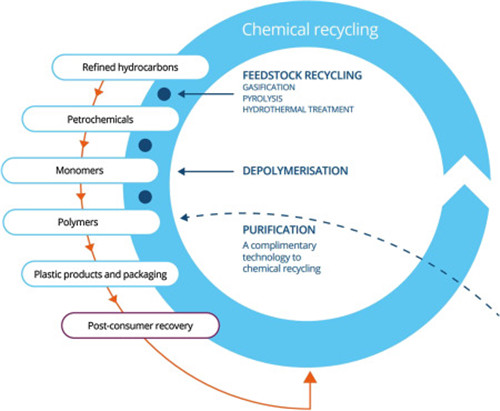
Purchasing Recycled Nonwoven Polyester: Key Considerations and Uses
When it comes to purchasing recycled nonwoven polyester, there are several key considerations that businesses should keep in mind. From ensuring the fabric meets quality and certification standards to understanding its various applications, making informed decisions can help contribute to a sustainable and circular economy.
Quality and Certification Standards
One of the first factors to consider when purchasing recycled nonwoven polyester is the quality of the fabric and the certification standards it meets. High-quality post-consumer waste should be used in the manufacturing process to ensure the fabric is free from impurities and defects, resulting in superior performance. Certifications such as the Global Recycled Standard (GRS) guarantee that the fabric is made from a minimum of 50% recycled materials and follows strict social and environmental criteria. Other certifications like OEKO-TEX Standard 100 ensure the fabric is free from harmful substances, while the Sustainable Apparel Coalition's Higg Index assesses the sustainability performance of the textile products. By prioritizing fabrics that meet these standards, businesses can invest in sustainable and reliable materials that align with their environmental goals.
Sourcing and Supply Chain Transparency
Another important consideration is the sourcing and supply chain transparency of the recycled nonwoven polyester. It is crucial to choose suppliers with a transparent and traceable supply chain, providing information on the source of the post-consumer waste and the recycling process involved. Additionally, inquire about the supplier's ethical practices and commitment to fair labor standards. A responsible sourcing policy and measures to ensure worker welfare are indicators of a supplier's ethical and environmental integrity. By selecting suppliers with transparent practices, businesses can have confidence in the sustainability and ethicality of the recycled nonwoven polyester they purchase.
Uses of Recycled Nonwoven Polyester
Recycled nonwoven polyester has a wide range of applications across various industries. It can be used to create clothing, outerwear, and accessories in the apparel and textiles sector, thanks to its durability and moisture resistance. In home furnishings, recycled nonwoven polyester finds application in upholstery, curtains, and bedding, benefiting from its breathability and resistance to moisture and mildew. The fabric's strength and durability make it suitable for industrial applications such as filtration systems, automotive interiors, and building materials. Additionally, the absorbent and quick-drying properties of recycled nonwoven polyester make it ideal for hygiene and healthcare products like wipes, diapers, and medical gowns. By understanding the various applications of recycled nonwoven polyester, businesses can explore different avenues to incorporate this sustainable fabric into their products and contribute to a circular economy.
In conclusion, when purchasing recycled nonwoven polyester, businesses should consider the fabric's quality and certification standards, sourcing and supply chain transparency, and the various applications it can be utilized for. By making informed decisions, businesses can not only contribute to environmental sustainability but also meet the growing demand for sustainable and reliable materials in the market.

Cost Considerations
When it comes to purchasing recycled nonwoven polyester, businesses should also consider the cost implications. While the upfront cost of recycled nonwoven polyester might be slightly higher than that of virgin polyester, there are several economic benefits to using recycled materials in the long run.
Economic Benefits of Using Recycled Nonwoven Polyester
1. Reduced Raw Material Costs: Using recycled nonwoven polyester can help businesses save on raw material costs. By repurposing post-consumer waste, companies can reduce their dependence on expensive virgin materials, contributing to overall cost savings.
2. Energy and Water Savings: The production of recycled nonwoven polyester requires significantly less energy and water compared to virgin polyester. This means that businesses can reduce their utility costs while also minimizing their environmental footprint.
3. Waste Management Cost Reduction: By utilizing recycled nonwoven polyester, businesses can contribute to a circular economy and reduce their waste management costs. This is because the use of recycled materials helps divert waste from landfills and reduces the need for disposal fees.
Comparison with Virgin Polyester
It is also important to compare recycled nonwoven polyester with its virgin polyester counterpart when considering cost considerations.
1. Environmental Impact: Virgin polyester production relies on the extraction of petroleum and other natural resources, contributing to environmental degradation. Recycled nonwoven polyester, on the other hand, reduces reliance on these resources and promotes a more sustainable approach to manufacturing.
2. Market Demand: As consumers become more environmentally conscious, there is a growing demand for sustainable and eco-friendly products. Incorporating recycled nonwoven polyester into your offerings can help attract environmentally conscious customers, leading to increased sales and market share.
3. Legislative Incentives: Some regions offer tax incentives or subsidies for businesses that incorporate recycled materials into their products. By using recycled nonwoven polyester, companies may be eligible for these incentives, further reducing their overall costs.
In conclusion, while the upfront cost of recycled nonwoven polyester may be slightly higher, businesses stand to gain economic benefits in the long run. From reduced raw material costs to energy and water savings, using recycled materials can contribute to cost savings and promote environmental sustainability. Additionally, comparing recycled nonwoven polyester with virgin polyester highlights the market demand for sustainable products and potential legislative incentives. By factoring in these cost considerations, businesses can make informed decisions and contribute to a more sustainable and economically viable future.
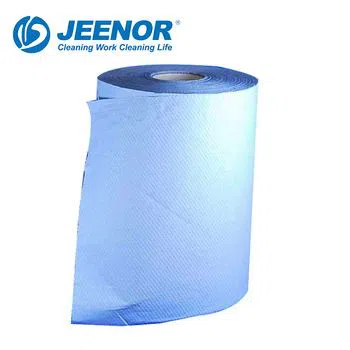
Case Studies and Success Stories
Examples of businesses using recycled nonwoven polyester
In recent years, more and more businesses have recognized the importance of sustainability and have started incorporating recycled nonwoven polyester into their products. Let's take a look at some inspiring case studies of businesses that have successfully implemented this eco-friendly material:
1. Outdoor Apparel Brand: A renowned outdoor apparel brand has made a commitment to sustainability by incorporating recycled nonwoven polyester into their product line. They have not only reduced their reliance on virgin polyester but also improved their brand image by offering products that align with the values of environmentally-conscious consumers.
2. Furniture Manufacturer: A leading furniture manufacturer has embraced the use of recycled nonwoven polyester in designing and producing upholstery fabrics. By doing so, they have not only reduced their carbon footprint but also attracted customers who prioritize sustainable and eco-friendly choices when furnishing their homes.
3. Automotive Industry: Some automobile manufacturers have started incorporating recycled nonwoven polyester in their interiors, such as seat covers and carpeting. This has not only helped them reduce waste and conserve resources but has also enhanced their brand reputation as being environmentally responsible.
Positive impact on sustainability goals
The utilization of recycled nonwoven polyester has a significant positive impact on a business's sustainability goals. Here's why:
1. Reduced Carbon Footprint: By incorporating recycled materials, businesses can significantly lower their carbon emissions compared to using virgin polyester. This aligns with their sustainability objectives and demonstrates their commitment to combating climate change.
2. Resource Conservation: Using recycled nonwoven polyester reduces the demand for new raw materials, thereby conserving precious natural resources. This contributes to a more sustainable manufacturing process and ensures the longevity of these resources for future generations.
3. Waste Reduction: By diverting post-consumer waste from landfills and repurposing it into new products, businesses using recycled nonwoven polyester contribute to a circular economy. This not only minimizes waste management costs but also reduces the negative environmental impacts associated with waste disposal.
When businesses choose to incorporate recycled nonwoven polyester, they not only reap the economic benefits but also make a positive impact on the environment. These case studies and success stories serve as inspiration for other businesses looking to embrace sustainable practices and differentiate themselves in the market.
By investing in recycled nonwoven polyester and sharing their success stories, these businesses are setting a precedent and encouraging others to follow suit. Together, we can create a more sustainable future while maintaining economic viability.
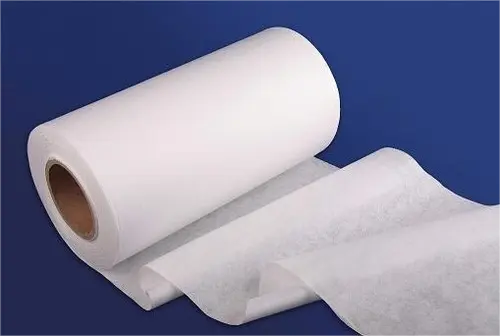
Purchasing Recycled Nonwoven Polyester: Key Considerations and Uses
Tips for sourcing and handling
When it comes to purchasing recycled nonwoven polyester, there are a few key considerations to keep in mind. Here are some tips to help you make informed decisions:
1. Source from reputable suppliers: Look for suppliers who are known for their commitment to sustainability and quality. Ensure that they adhere to strict standards in the sourcing and manufacturing process of recycled nonwoven polyester.
2. Evaluate the recycled content: Check the percentage of recycled content in the nonwoven polyester. The higher the percentage, the more sustainable the material. Aim for a high-recycled content to maximize the environmental benefits of your purchase.
3. Consider the manufacturing process: Look for suppliers who minimize energy and water consumption during the manufacturing process. This ensures that the production of the recycled nonwoven polyester has a lower impact on the environment.
4. Assess durability and performance: Ensure that the recycled nonwoven polyester meets your specific requirements in terms of strength, abrasion resistance, and other performance factors. Seek samples and conduct tests to verify the material's suitability for your intended use.
5. Verify certifications: Look for certifications such as Global Recycled Standard (GRS) or Recycled Claim Standard (RCS) to ensure that the recycled nonwoven polyester meets recognized industry standards for sustainability.
Maintenance and care instructions
To ensure the longevity and performance of products made from recycled nonwoven polyester, it is essential to follow proper maintenance and care instructions. Here are a few guidelines to keep in mind:
1. Read the product labels: Carefully read and follow any care instructions provided by the manufacturer. These instructions may include guidelines for washing, drying, and ironing the product.
2. Use mild detergents: When washing products made from recycled nonwoven polyester, opt for mild detergents that are free from harsh chemicals. This helps preserve the quality of the material and minimizes environmental impact.
3. Wash at appropriate temperatures: Follow the recommended washing temperature specified for the product. Washing at excessively high temperatures can lead to damage and reduce the lifespan of the material.
4. Avoid excessive heat: Avoid exposing products made from recycled nonwoven polyester to excessive heat during drying or ironing. High temperatures can cause the material to shrink or lose its shape.
5. Store properly: When not in use, store products in a clean and dry area away from direct sunlight. This helps prevent fading and degradation of the material over time.
By considering these tips and following proper maintenance and care instructions, you can ensure the optimal performance and longevity of products made from recycled nonwoven polyester. Embracing the use of this eco-friendly material not only benefits the environment but also enhances your brand's sustainability efforts and sets you apart from your competitors.
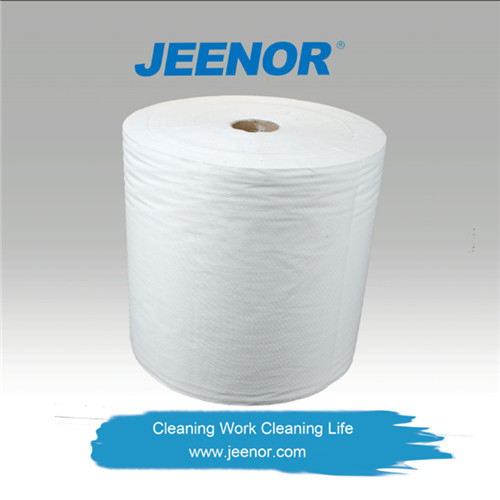
Conclusion
In conclusion, purchasing recycled nonwoven polyester offers numerous benefits in terms of sustainability and environmental impact. By sourcing from reputable suppliers, evaluating the recycled content, considering the manufacturing process, and assessing durability and performance, businesses can make informed decisions that align with their sustainability goals. Additionally, verifying certifications such as the Global Recycled Standard or Recycled Claim Standard ensures compliance with industry standards.
To maintain and care for products made from recycled nonwoven polyester, following proper care instructions is crucial. This includes reading product labels, using mild detergents, washing at appropriate temperatures, avoiding excessive heat, and storing the products properly. By doing so, businesses can ensure optimal performance and longevity while minimizing environmental impact.
The use of recycled nonwoven polyester not only benefits the environment but also enhances a brand's sustainability efforts. It sets businesses apart from competitors by showcasing their commitment to eco-friendly practices. Utilizing this material helps create a positive brand image and resonates with environmentally conscious consumers. As sustainability becomes increasingly important for consumers, embracing recycled nonwoven polyester can be a strategic advantage for businesses.
Summary of key considerations and uses for recycled nonwoven polyester
In summary, when purchasing recycled nonwoven polyester, businesses should consider factors such as sourcing from reputable suppliers, evaluating the recycled content, considering the manufacturing process, and assessing durability and performance. By doing so, businesses can ensure that they are making sustainable choices and maximizing the environmental benefits of their purchase.
Recycled nonwoven polyester can be used in various applications, including but not limited to clothing, upholstery, bedding, and automotive interiors. Its versatility and durability make it an ideal choice for businesses looking to incorporate sustainable materials into their products. With proper care and maintenance, products made from recycled nonwoven polyester can deliver the same level of performance as those made from virgin materials.
Future prospects and trends in the industry
Looking ahead, the demand for sustainable materials, including recycled nonwoven polyester, is expected to continue growing. As consumers become more conscious of their environmental footprint, businesses are increasingly incorporating eco-friendly practices into their operations. This trend is driving the innovation and development of sustainable materials in various industries.
In the nonwoven industry specifically, advancements in recycling technologies and processes are likely to expand the availability and accessibility of recycled nonwoven polyester. Manufacturers are also exploring new ways to improve the performance and quality of recycled materials, making them more competitive with virgin materials.
Furthermore, there is a growing emphasis on circular economy principles, which promote the reuse and recycling of materials to reduce waste. This shift towards a circular economy is expected to further drive the adoption of recycled nonwoven polyester and similar materials in the future.
Overall, by embracing the use of recycled nonwoven polyester and staying informed about the latest trends and advancements in the industry, businesses can position themselves as leaders in sustainability and meet the evolving demands of environmentally conscious consumers.




